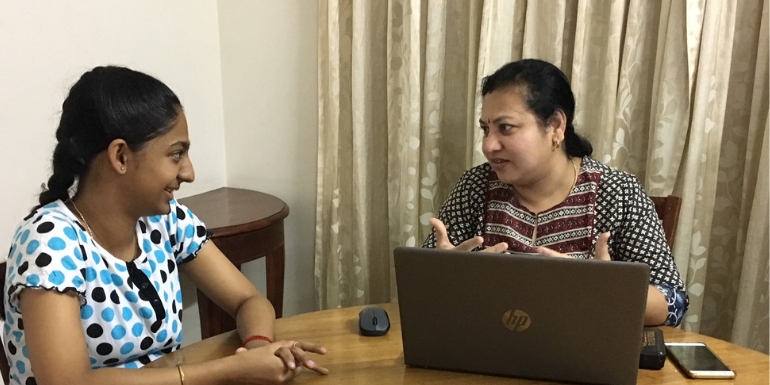One of the most coveted job sectors in India is the Banking sector that not only helps eligible candidates get a prestigious job but provides job security too. If you are someone who aspires to go for banking courses after class 12th, this blog is for you. Choosing the right course is indeed significant hence it shapes your future career. Courses are in abundance be it bachelors, certifications, or diplomas. You need to decide the right pick for you and move ahead.
Here in this article, we will be explaining in detail what are the best banking courses after 12th irrespective of the stream and what are some of the best colleges to pursue the courses. Each course seeks a basic set of eligibility requirements that the candidates need to fulfil. If you fail to satisfy those requirements, admission will get difficult. Read this blog in detail to know all the minute details.
Banking Courses after 12th Science (PCM)
If you are someone who studied physics, chemistry, and mathematics in 10+2, choosing a banking course such as Finance and Accounting would be of great advantage. The two most coveted courses in this regard are Chartered Accountant (CA) and Cost Management and Accounting (CMA). Let us discuss the eligibility requirements and the best colleges to pursue these courses.
Chartered Accountant (CA) - Eligibility Criteria, Entrance, and Best Colleges
To be eligible to pursue the Level 1 (Foundation Course) in CA, the candidates must have completed their 10+2 exams from a recognized school. To pursue the Chartered Accountant course aspirants need to crack the Common Proficiency Test (CPT). The exam takes place twice a year. Interested candidates who fulfil the required criteria can fill the application form and pay the requisite fee to get along in the examination. Take a look at the best colleges to pursue a Chartered Accountant Course.
Cost Management and Accounting, Certification Course: Eligibility, Entrance Exams, and Best Colleges
Cost Management and Accounting (CMA) is another popular course that students often opt for after completing high school. Candidates who complete their 12th standard from a recognized school or board are eligible to take up the certification program. There’s no particular exam conducted for this particular course. It consists of three levels and aspirants need to get through each one by one to be eligible for the next one. The course offers a flexible duration and solely depends on the student’s capability to finish it. It might vary anywhere between six months and four years. Here go the names of the best institutes or courses that offer certification programs in CMA.
Banking Courses after 12th Commerce
If you are in your high school studying commerce, many options lie ahead in terms of pursuing a degree in any banking course. Two such tempting names include Bachelor of Commerce and Bachelors in Finance and Accounting. Let us discuss the fields in detail alongside their receptive eligibility requirements and the best colleges to study.
Bachelor of Commerce: Eligibility, Entrance Exams, and Best Colleges
Being a B.Com student, you can specialize in any of the below fields concerning banking:
- Tax Procedure
- Office Management
- E-Commerce
- Foreign Trade
- Advertising and Sales Management
To be eligible for this course, you need to have finished your high school from a recognized board with a minimum of 50% marks in aggregate. Admission in most of the colleges is mainly based on merit where marks obtained in the final exams are considered. However, some colleges conduct entrance tests to select candidates based on their performance in the test. The table below highlights the names of some top-tier colleges in India including the admission criteria.
Bachelor of Finance and Accounting: Eligibility, Entrance Exams, and Best Colleges
Bachelor of Finance and Accounting is a 3-year course, where students obtain extensive knowledge in taxation, business laws, finance, economics, etc. Candidates who pass their 12th exam with a minimum of 50% marks from recognized boards are eligible to apply for the program. Some colleges conduct entrance exams to select candidates while in most of the colleges it is merit-based. The best colleges offering Bachelor’s of Finance and Accounting are:
Diploma in Banking and Finance: Eligibility, Entrance Exams, and Best Colleges
Diploma in Banking and Finance is a short one-year course where candidates are introduced to the basics of banking and finance. Despite not being very detailed like other courses, this program is significant to help students get acquainted with the fundamentals and obtain a stronghold over the topics. Candidates who have completed their 10+2 examination are eligible for the course. The duration is of a year. Take a look at the names of the best institutes offering Diploma in Banking and Finance.
Banking Courses after 12th Arts
If you are an art student and aspire to land a job in the banking sector, you can pursue a Bachelors of Economics after high school. Have a look at the details below.
Bachelor’s of Economics: Eligibility, Entrance Exams, and Best Colleges
Bachelor of Economics is a precious course that offers you minute knowledge on economics, applied economics, finances, econometrics, and different theories. Economics has a crucial role to play in the banking sector and hence getting this degree will help you get a grand career in the banking sector. To be eligible for the course, candidates need to be 10+2 pass-outs with at least 50-55% aggregate from a recognized board or school. Similar to most other courses, getting admission into Economics honours is based on merit. Few colleges conduct entrance exams as well.
Competitive Banking Examinations
After finishing their graduation in the related field, candidates are eligible to appear for various competitive banking examinations based on their qualifications, tastes, and interests. Here’s a list of the most popular banking examinations that you can go for.
Note: The list covers the most popular ones. The bank exam names aren’t limited to this list.
Career Scopes in Banking Sector
As mentioned at the beginning of this blog, the banking sector is strikingly booming in India. Therefore, as a qualified candidate, you have plenty of options to choose from. Here we have listed some popular job categories in the banking sectors.
- Branch Manager
- Loan Officer
- Internal Auditor
- Data Processing Officer
- Bank Marketing Representative
- Credit Analyst
- Investment Banker
- Relationship Manager
- Bank Teller
- Mortgage Consultant
- Loan Processor
Why Choose the Banking Sector?
Talking about our careers, the first thing that strikes our mind is security. Considering the ongoing economic condition of the country, landing a safe and secure job is a need of the hour. Working in government bank sectors not only gives you job security but you have job satisfaction as well. Even working in private banks helps you get an identity. The perks of working in the banking sectors include but are not limited to:
- Safe, pleasant, and rewarding workplaces to invest your time in.
- Provides with excellent allowances like medical reimbursements, travel allowances, disability insurances, sick leaves to name a few.
- Pension benefits after retirement.
- Comes with a good salary and grants job stability.
- Makes you well versed with different challenging roles thus allowing you to experience an exciting career instead of a monotonous one.
So you see, the perks of joining the banking sector are just too many. However, the path is not going to be smooth and you need to be very serious with your preparations to achieve your goals. Always remember one thing, hard work is the key gateway to success no matter what! So stay focused on your goals and execute your plan accordingly. I hope this blog helped make you understand what are the various banking courses you can go for after completing your 12th standard. We wish you very good luck in your upcoming endeavours!













